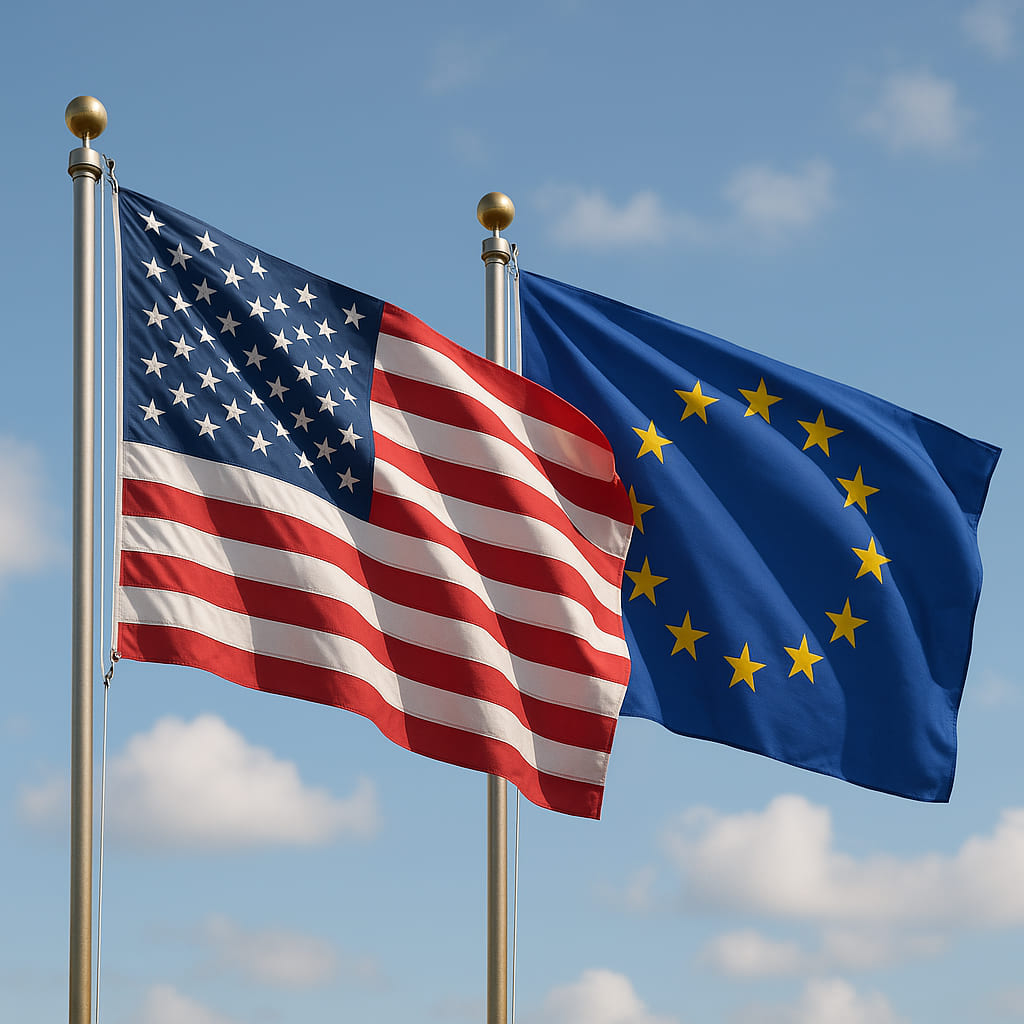US attitudes towards Europe: a shift of paradigms ?
Focusing on the relationship between the USA and Europe, this study ask the question : can the EU be a real international player?

Partnership with the US has always been a central building block of the European project.
That doesn’t mean that the transatlantic relationship has always been an easy one : divergent sensitivities were very often apparent and even conflicts of interest could be seen from time to time. In the last few years, however, the main impression has been that a growing gap has developed in the field of foreign policy. Whether one refers to international environmental policy, to the role played by the UN, to the resort to coercion, or, more generally, to the rightful place of the legal norm in international relations, there is a growing contrast between American views, on the one hand, and, on the other, if one accepts looking beyond some manifest differences, unified perceptions, at the grass roots level, on the part of the Europeans.
For some, this is a welcome development, as they see it as a way of feeding anti-American feelings lingering under the surface. Others prefer not to recognise it, for they reject anything that can distance Europe from Washington as a matter of principle. Looking beyond these preordained positions, we must, however, each and everyone of us, ask ourselves what lies beneath this change, a change made glaringly obvious by the Iraqi crisis.
The minutely researched paper Timo Behr dedicates to the developments of US foreign policy is therefore well timed. It must be commended for taking on some of the tenets of the conventional wisdom on the subject. It takes issue with the arguments favoured by many analysts, according to whom the decisive moment was when the Bush administration took office, by relevantly recalling that the US penchant for unilateralism has old end deep roots in history and that the traumatic impact of 9-11 was also felt in the ranks of the Democratic Party. Conversely, the author highlights in a relevant way that there is much more evidence of conflicts over values, opposing Europe and the US, at the official level than at the level of public opinion. It is not easy in such a context to ascertain whether the present trends will persist.
Putting it in other, more practical, words: would another administration have behaved in a substantially different way ? That is certainly a question that calls for clear thinking on the part of Europeans given the weight the US carries on the world stage. Europeans should also be looking for the best way to promote their common values vis-à -vis their unavoidable partner. In a more general way, at a time when the creation of a European minister for foreign relations is being contemplated, it may not be useless to recall that any foreign policy worthy of its name implies first and foremost a pooling of the analyses of the international situation provided by the different member states. That is an indispensable prerequisite for the patient work required to bring different national positions closer together. If Europe is really intent on becoming an actor in its own right on the world stage, it will have to come up with its answers to the queries put forward in this paper.




